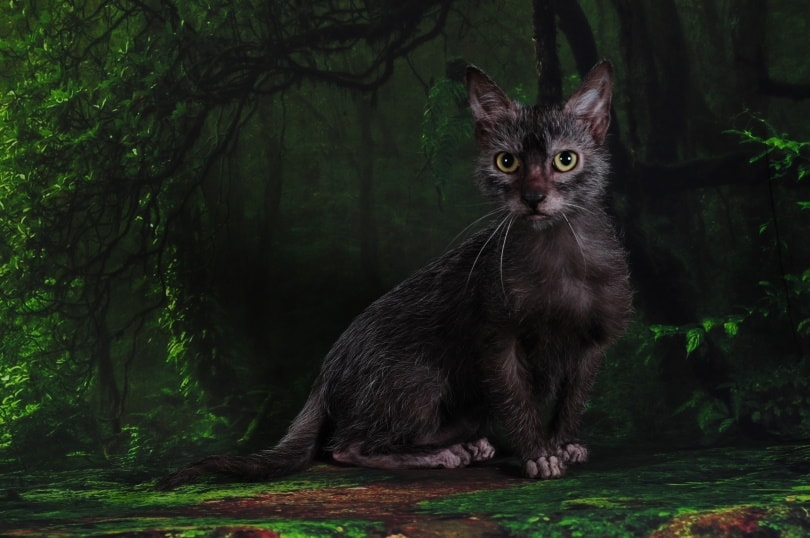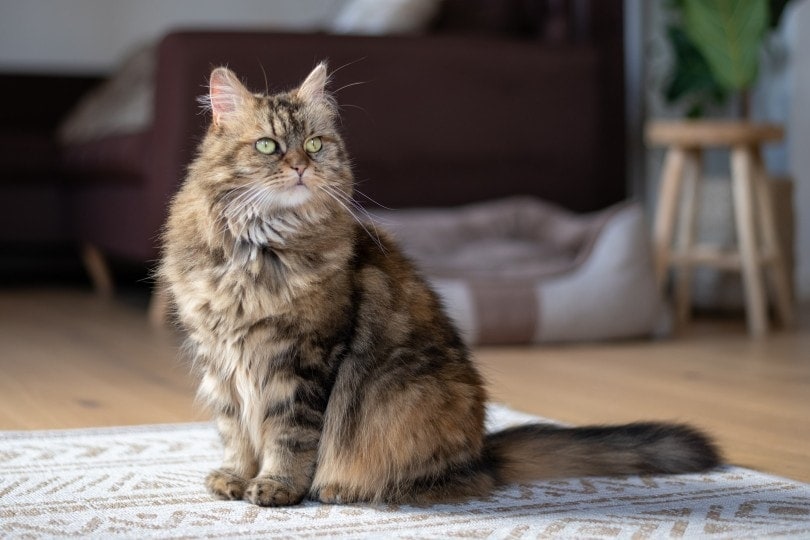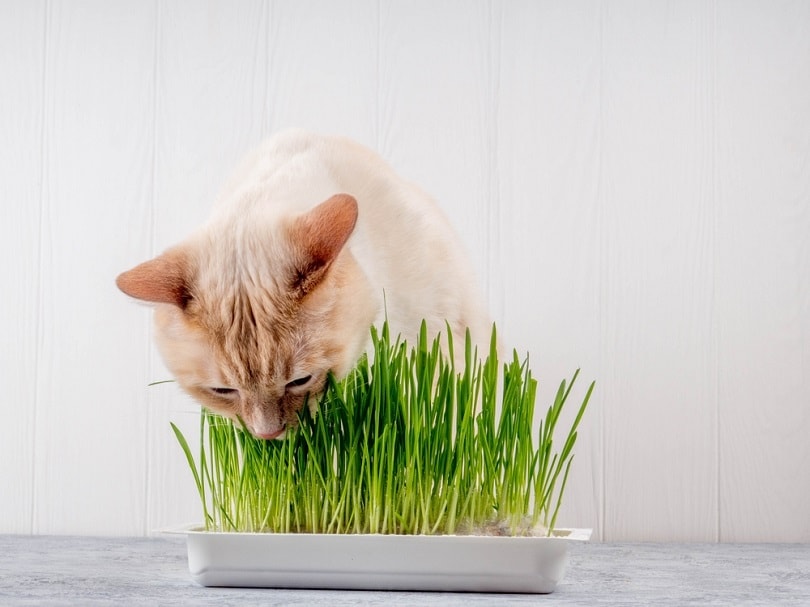Can Cats Eat Bird Seed? Vet-Approved Health & Safety Guide

Updated on
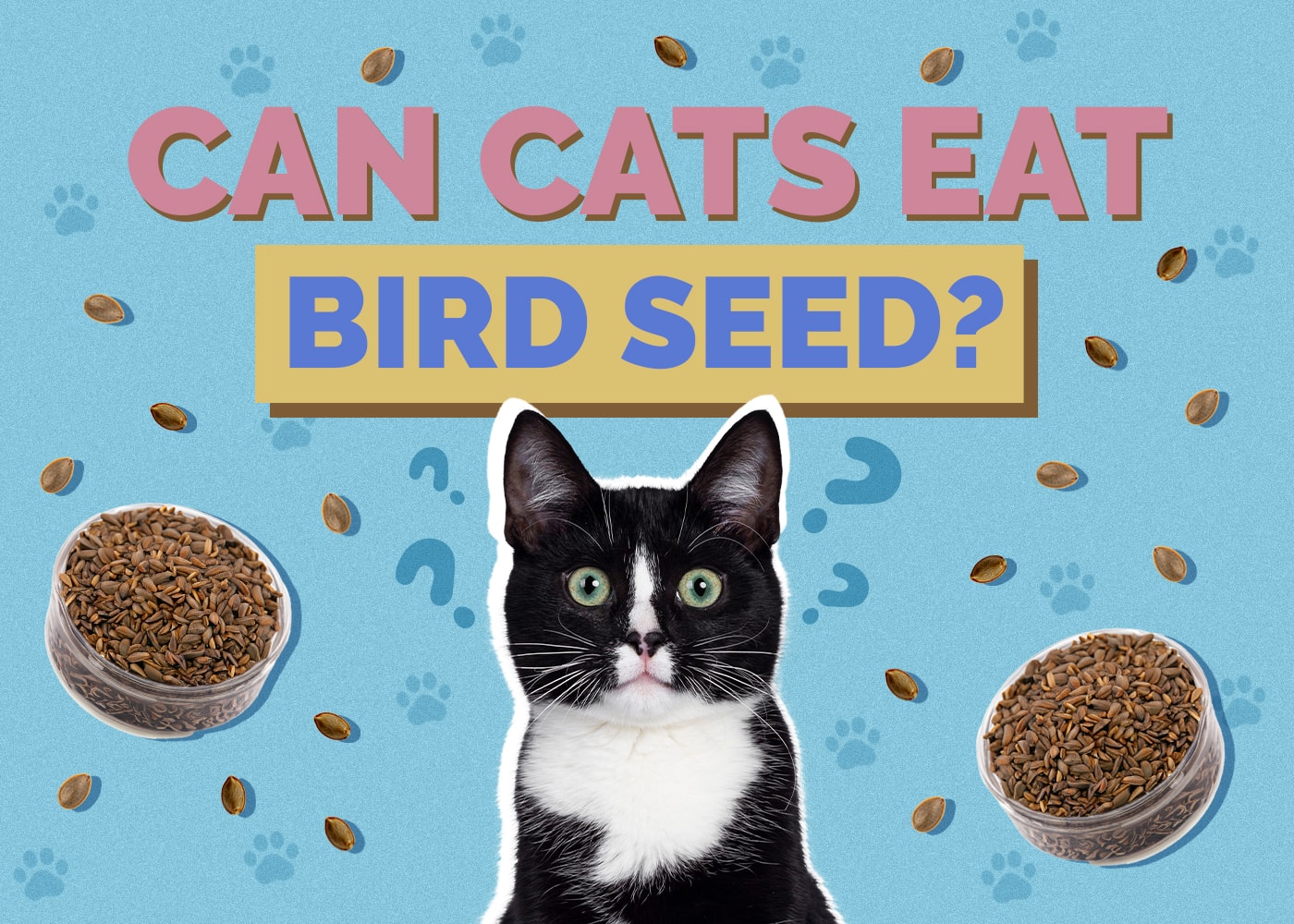
Cats are obligate carnivores, which means that their diet should consist almost solely of meat and animal products. Despite this, cats might sometimes try other foods, either through boredom or to sate their legendary curiosity. If they’ve seen you putting seeds out for birds, or they come across a feeder in the neighbor’s yard, cats may try some of the seeds on offer.
Most bird seed is not toxic to cats, although they will gain very little or no nutritional benefit from it. However, old bird seed that has been sitting on the ground or in an unused feeder for some time may contain toxins like aflatoxin that can cause illness. Generally, you should not intentionally give your cats bird seed, but it is unlikely to cause any major problems if yours does eat a small handful.
Bird Seed
The exact contents of bird seed vary according to the manufacturer, the make, and the birds that the seed is designed for. It can contain maize and sunflower seeds and may contain additional ingredients, like peanuts. None of these ingredients are considered toxic or dangerous to cats when found in bird seed, although packets of seeds and nuts designed for human consumption may contain high levels of salt and sugar, so they should be avoided especially. Suet and seed balls are also available to feed garden birds and the high fat content of these can cause gastrointestinal upset or pancreatitis in cats and must be avoided.
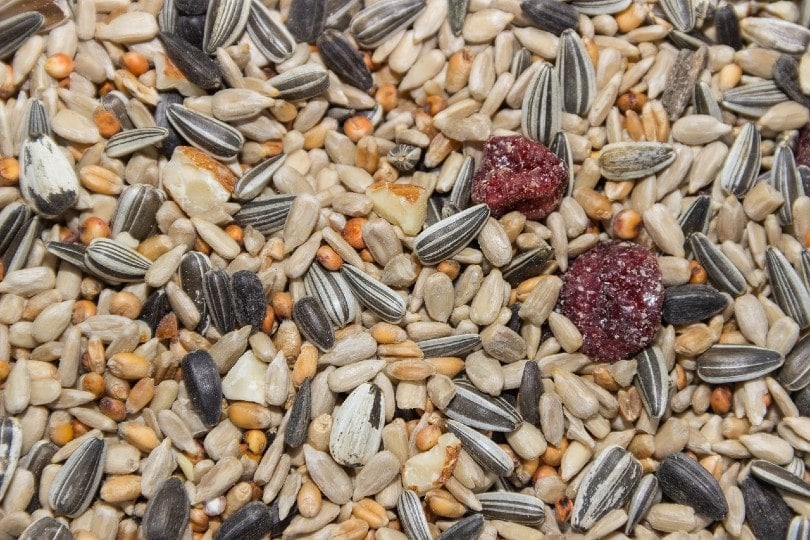
Old Seed
One exception is old seed. When seeds age, or especially when they become damp, they can start to develop fungi and mold. These create mycotoxins, which are toxins specifically created by a fungus. One such toxin is aflatoxin. This can prove fatal to birds and can also cause illness in humans and in dogs and cats.
It is also worth noting that if your cat is eating old seed that is found under bird feeders, they are likely eating bird feces, which can also contain bacteria that cause illness in cats.
Aflatoxin Poisoning
Common symptoms of aflatoxin poisoning include lethargy, vomiting, and diarrhea. You may also see signs of liver damage and jaundice (yellowing around the eyes and gums), and, in severe cases, this toxicity can prove fatal. If you believe your cat has eaten damp or old seed and is showing any of these symptoms, call your vet to determine your best course of action.
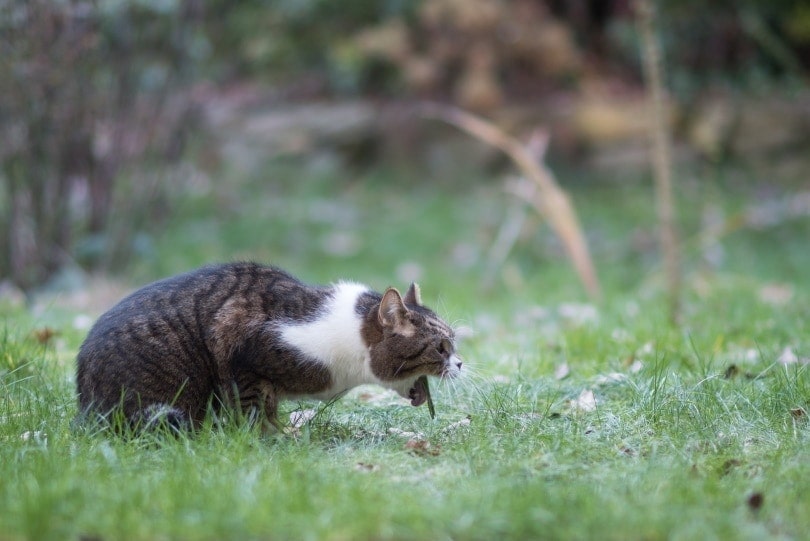
Cat Nutrition
So, in most cases, bird seed is not dangerous or toxic for cats. However, just because it won’t cause illness or fatality doesn’t mean that your cat should be eating bird seed regularly.
Cats are carnivores. In the wild, they would eat birds and small animals. They would consume the skin, organs, and meat, as well as other parts of the animal, and they may eat some small amount of vegetables found in their prey’s stomach. However, other than to help ease gastrointestinal upset, they would not eat fruit, vegetables, and other plants.
Because they are obligate carnivores, cats possess fewer and lower amounts of the digestive enzymes to break down plant matter. They also have adaptations to their intestinal tracts which reduce their ability to gain energy and nutrients from plants.
The 5 Foods Toxic to Cats
Cats are seen as picky eaters. They are sensitive to the temperature, texture, shape, smell, and taste of food. What’s more, there is a surprisingly long list of foods that cats shouldn’t eat, including the following five, some of which are surprising.
1. Tuna
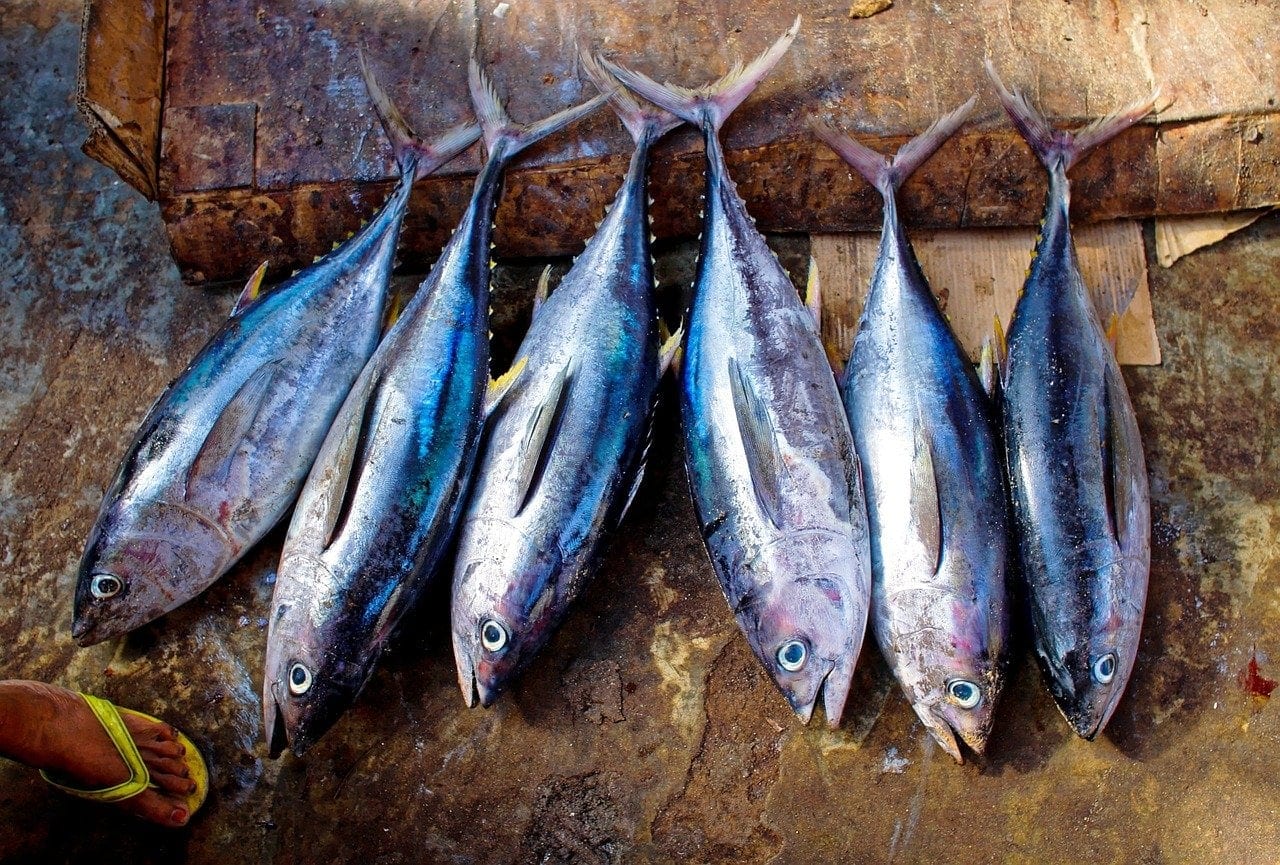
Cats are regularly depicted eating cans of tuna, and a small amount of this tasty fish every now and then likely won’t do any harm. However, it is not nutritionally balanced, so it should not form a regular part of your cat’s diet. What’s more, tuna has a high concentration of mercury, so feeding too much could cause mercury poisoning in your feline friend. Despite this, cats love tuna, and this causes another problem because your cat will eat the tuna in preference to nutritionally balanced cat food and healthy meals.
2. Garlic

Garlic is a member of the allium family, along with onions and shallots. These can cause hemolytic anemia, which effectively means that the feline’s red blood cells break down and fail to work. Signs include vomiting, diarrhea, pale gums, and blood in the urine. It doesn’t take very much garlic to have negative effects, and cooking or drying the garlic doesn’t reduce the toxicity. Concentrated garlic powder, often used to flavor human foods, is even more dangerous.
3. Milk
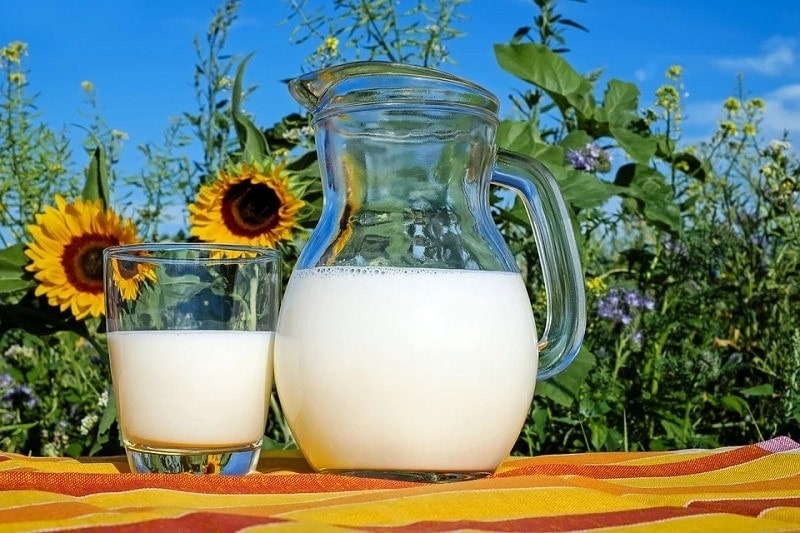
This is another dietary ingredient that cats are depicted as consuming but that can cause illness. Most cats are lactose intolerant, which means that they should not consume milk, cheese, or other dairy products. At the very least it will cause gas and may lead to vomiting and diarrhea.
4. Grapes
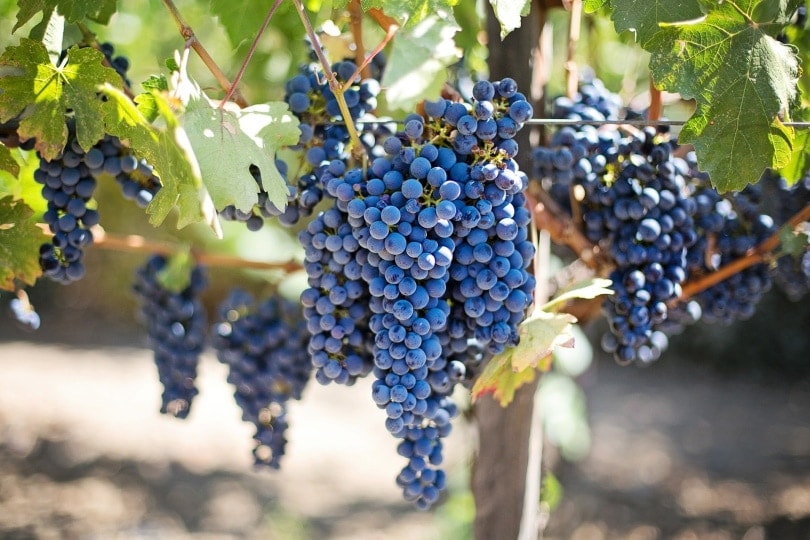
Most cats will never come into contact with grapes, but if you eat a lot of them, you might find that your cat likes to bat one around and chase it. However, grapes are very toxic to your feline friend, so you should prevent them from consuming grapes and their dried form, raisins. Grapes are actually considered more dangerous than chocolate.
5. Chocolate
Chocolate contains theobromine. This acts as a powerful stimulant in cats and can lead to an elevated heart rate. It also works as a diuretic, therefore depleting bodily fluids and causing dehydration. Chocolate really can kill cats. Signs include vomiting and diarrhea, increased urination, and even seizures, and you should seek veterinary help immediately if you believe your cat has eaten any chocolate.
Now that you know what you can safely feed your cat, it’s just as important to find a bowl that supports their health and well-being. With whisker-friendly bowls and a wide tray to catch any spills, our Hepper NomNom Cat Bowl is our favorite option.
Conclusion
Bird seed is not considered toxic for cats, although damp and old bird seed may contain mycotoxins that cause illness. Care should also be taken to ensure no toxic fruits, such as raisins or cherries, are contained in the bird seed mix. However, cats are carnivores, and they are unable to efficiently break down and benefit from the nutrients in seeds, so they should not be fed to cats. Other foods that you should avoid giving your feline friend include tuna and milk, as well as garlic, grapes, and chocolate.
Related Reads:
Featured Image Credit: _Alicja_, Pixabay





